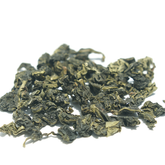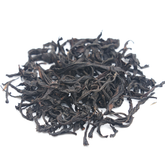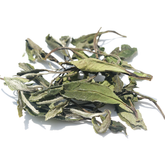Does Green Tea Help With Bloating? Here's What You Should Know
Common Causes of Bloating
The causes of bloating are mainly categorized as physiological or disease epidemics. For physiological causes of bloating is usually easy to relieve. In normal people, there is a small amount of gas in the gastrointestinal tract, partly in the stomach and partly in the colon, and very little gas in the small intestine. The total amount of gas in the gastrointestinal tract does not exceed 150 ml. There are two sources of gas in the gastrointestinal tract: the gas that is swallowed, and the gas that is produced by the fermentation of food in the gastrointestinal tract through the action of the bacteria in the gastrointestinal tract.
Why does flatulence occur in the gastrointestinal tract? Usually it is due to eating too fast, excessive salivation, chewing gum, then the air swallowed increases. Aerophagia is most often seen in a state of persistent anxiety, or when there is a foreign body in the mouth and bloating occurs due to swallowing a large amount of air, mostly in the stomach. Also in cases of indigestion, the bacteria in the intestines act on proteins, fats and sugars, producing large amounts of gas due to fermentation and causing bloating. Flatulence can also be caused by diseases, such as indigestion, intestinal dyskinesia, or peptic ulcer, chronic gastritis, colitis, gallstones, etc. Flatulence can also be caused by diseases, such as indigestion, intestinal dyskinesia, or gallstones.
Does green tea help with bloating?
Drinking green tea is not a good solution for bloating. Green tea has high content of tea polyphenols and is an unfermented tea. Tea polyphenols have strong astringent properties, which can directly stimulate the gastric mucosa, and those who are more sensitive to gastric acid secretion may experience gastric discomfort or even aggravation of gastritis or gastric ulcer symptoms. For physiological causes of bloating, may be a large amount of swallowed air, drinking carbonated beverages, or eat easy to gas-producing foods, like soy products, sweet potatoes, in this case we can drink to promote gastrointestinal peristalsis of the tea. In China we have researched a very large number of tea lovers, especially female customers. They all especially tend to drink Pu-erh ripe tea after eating a lot of meat, because Pu-erh ripe tea is very effective in relieving greasiness and promoting gastrointestinal motility. Some customers will obviously feel that their intestines and stomachs are speeding up after drinking ripe tea, and they will hear a magical gurgling sound. This is very conducive to resolving physiological bloating.
What is Ripe Puerh Tea?
Puerh Ripe Tea is a unique tea from Yunnan Province in China, with the main production areas in Puerh City, Xishuangbanna and Lincang. Black tea is one of the six major types of tea, and is distinguished from other types of tea by its production process, which includes the technique of “Wolpeng fermentation”, which transforms polyphenols, caffeine, and other components in the tea leaves, resulting in a warm, mellow taste and a unique aroma of aging. Because ripe tea is fermented, it reduces the stimulation to the stomach and intestines, and is especially suitable for people with sensitive stomachs. At the same time, ripe tea can promote digestion, known as China's weight loss tea. Ripe tea is rich in theaflavins, tea polysaccharides and other components, these substances can help intestinal peristalsis to solve the physiological bloating problem.
SEE MORE ABOUT TEAS
If you have questions about selecting tea:
Learn-more-about-chinese-tea
If you have questions about the benefits of tea:
Health-benefits-of-chinese-tea
If you have questions about brewing tea:
How-to-brew-loose-leaf-tea






